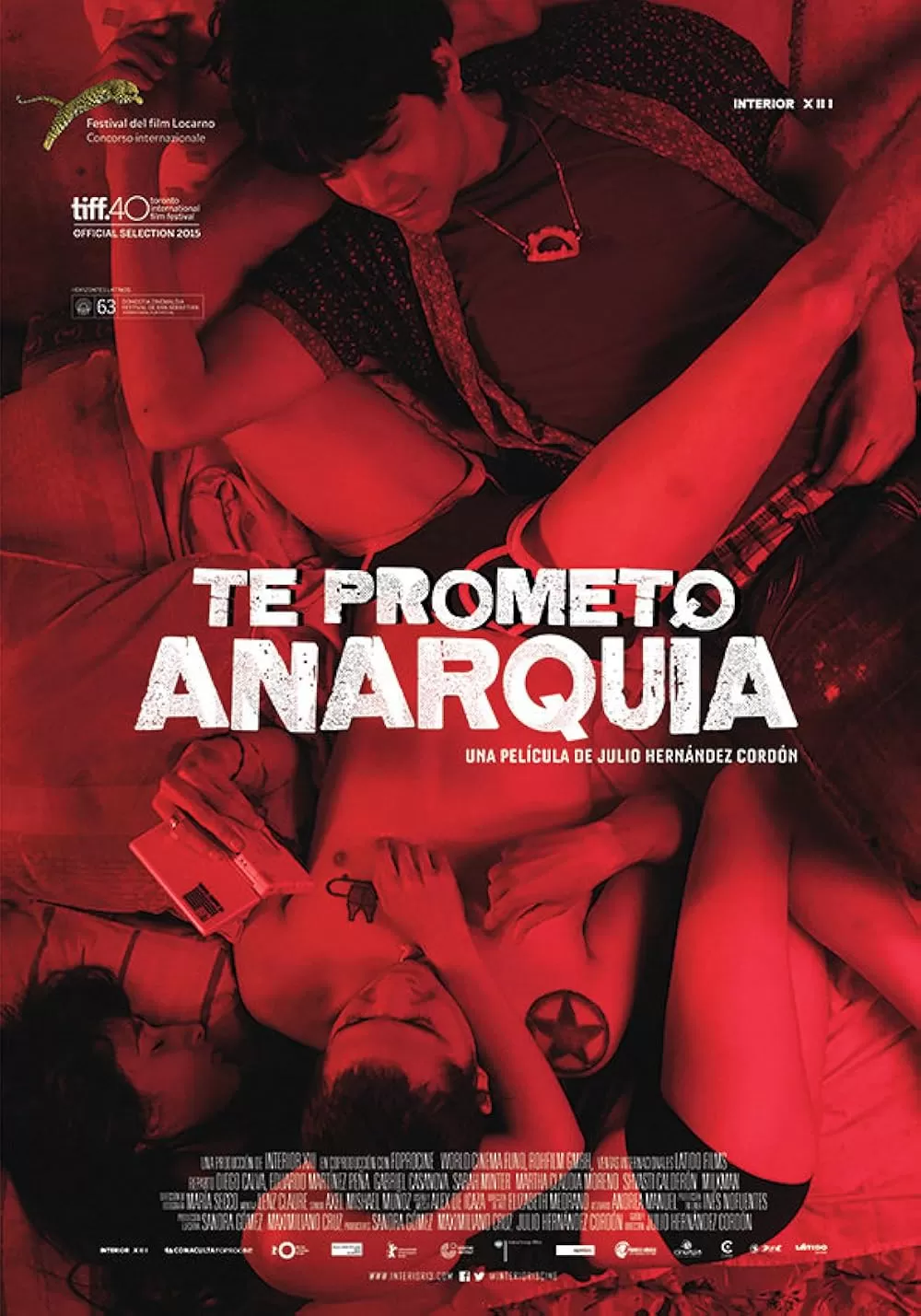Skimming through Te Prometo Anarquía felt like diving headfirst into a bustling Mexican skateboard park—vibrant, raw, and full of restless energy. The film initially hints at a tender love story between two boys, Miguel and Johnny, but quickly shifts gears into a gritty crime thriller tangled with social drama. Honestly, I kept hoping it would linger a bit more in the romantic realm, because that tension between Miguel’s middle-class world and Johnny’s complicated identity as a bisexual skater straddling social divides had so much juice to squeeze. Instead, the plot ambitiously veers towards a dark underworld, where blood—both literal and metaphorical—becomes the currency, killing the sweet spark I yearned for.
Miguel, a young skater from comfortable surroundings, and Johnny, who belongs to a world far rougher and more shadowed, share a volatile connection peppered with jealousy and raw vulnerability. Throw Adri into the mix—the girlfriend caught in a triangle of fractured loyalties—and you have emotional landmines ready to explode. But it’s the illegal blood-selling scheme that really drags these kids into a gruesome spiral, revealing desperation etched deep in their lives. The scene where armed men round up donors—reminding me eerily of a nightmare cattle drive—left my heart pounding. Who were these kids? Where were they headed? The film keeps their fate ominously silent, letting dread curl around the story’s edges like smoke.

Yet, despite moments that hit like a punch to the gut, the film stumbles. I couldn’t shake the feeling that the thriller elements were a tonal mismatch, like mismatched shoes you struggle to walk in. The love story, which could have been a blazing fire illuminating the characters, gets sidelined, while the crime plot feels like a disjointed interruption that never fully grips your attention. It’s as if Te Prometo Anarquía tried to wear too many hats – romance, social critique, thriller, bromance – but ended up dropping most of them. The chemistry between Miguel and Johnny, crucial for a story like this, never truly ignites, leaving me longing for more authentic connection instead of the slow, draggy pacing that felt more like a reluctant stroll than a gripping chase.
What really strikes me is how the film captures poverty—not as an abstract concept, but as a living, breathing beast gnawing at these boys’ choices. The initial skateboarding shots aren’t just there to look cool; they set the stage for why these kids are pushed to extremes, selling their very blood to survive. And yet, this powerful backdrop doesn’t fully get the exploration it deserves—the film’s heart seems divided and uncertain. As someone who’s witnessed how love and hardship intertwine in real life, I felt this movie scratched the surface without plunging deep enough.
In the end, Te Prometo Anarquía feels like a passionate sketch with bold strokes, but no color fills—the potential is deafening, yet the execution leaves you whispering what might have been. Would it have been better to focus on the fragile, electric love between Miguel and Johnny, letting social struggles seep naturally rather than shove the camera into shocking crime scenes? For me, that’s the question lingering long after the credits roll.



I really relate to your wish that the film would linger longer in the romantic tension between Miguel and Johnny. The way you describe their worlds colliding—especially with Johnny’s identity and Miguel’s comfort—makes me curious how much more depth could have been explored before the crime plot took over.